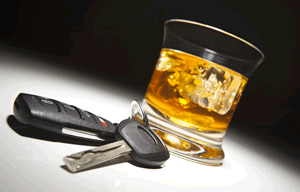Should I submit to a chemical test after a DUI arrest?
Refusing to submit to a chemical test after a DUI arrest can result in serious consequences for drivers in every state. Under each state's vehicle codes drivers are required to consent to a chemical test if arrested for suspicion of drunk driving. This is known as the "Implied Consent Law." This does not include the field sobriety tests or the Preliminary Alcohol Screening (PAS) test.
So what happens if you refuse a chemical test? A chemical test refusal could result in enhanced penalties, and an automatic drivers' license suspension. In some states a refusal can also be used as evidence against you in your DUI trial.
So what is a chemical test refusal? If you have been arrested for DUI the arresting officer should tell you about the penalties of a chemical test refusal. In most states the officer will read the statutes verbatim from the state's Department of Motor Vehicle form which serves as the officer's sworn affidavit of arrest and a temporary driver's license for the driver. Keep in mind, the instructions from the officer should be unambiguous and clear.
Your answer to take the test must also be clear. For instance, if you respond, "No, I will not take the chemical test," the officer will consider this a chemical test refusal. If you respond, "I want to call my lawyer," this may also be considered a chemical test refusal. What if you remain silent? This may also be considered a test refusal.
If you refuse to take a chemical test or you submit to the test and your blood alcohol concentration is 0.08% or higher, the DMV in your state has the legal right to suspend your driver's license, assuming you do not contact them within a specified number of days from the date of the DUI arrest and request a stay and a hearing of your driver's license suspension. If you take no action your license is generally suspended within 30 days from the date of the DUI arrest (this could vary by state).
So, should you refuse to take a chemical test after a DUI? In most cases the answer is no, although each case is different. One option after your DUI arrest is to request to speak to an attorney immediately. Not all states, however, will allow you to talk to a lawyer prior to taking a chemical test. If you live in a state which does not allow a consultation, it is important to contact a lawyer as soon as possible. If you live in a state which does allow a consultation, you can call your DUI lawyer, explain the circumstances surrounding your DUI arrest and discuss if you should submit to the chemical test.
Related Pages
Latest Question
Prenuptial agreement when can it be disregarded?
Prenuptial agreements are generally enforced but they can be disregarded if certain conditions are met.Category: Divorce


